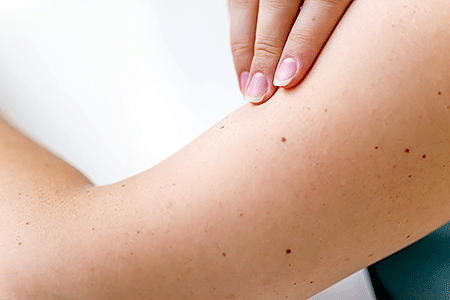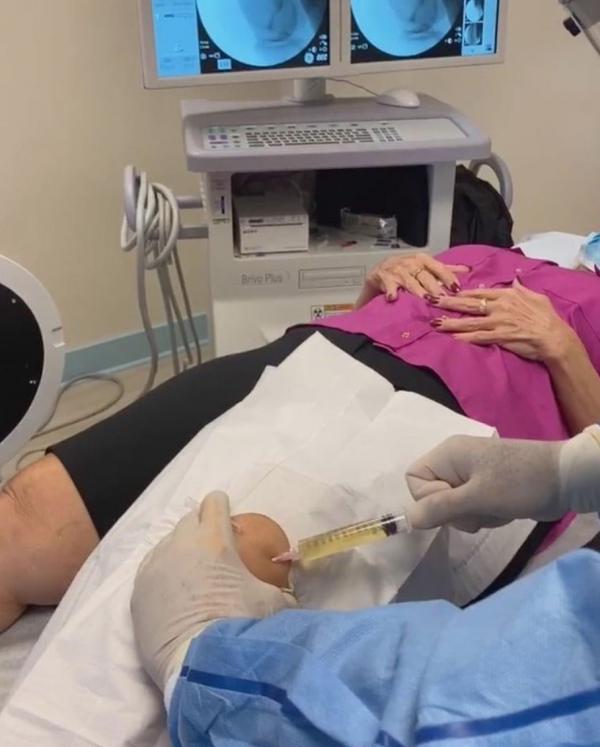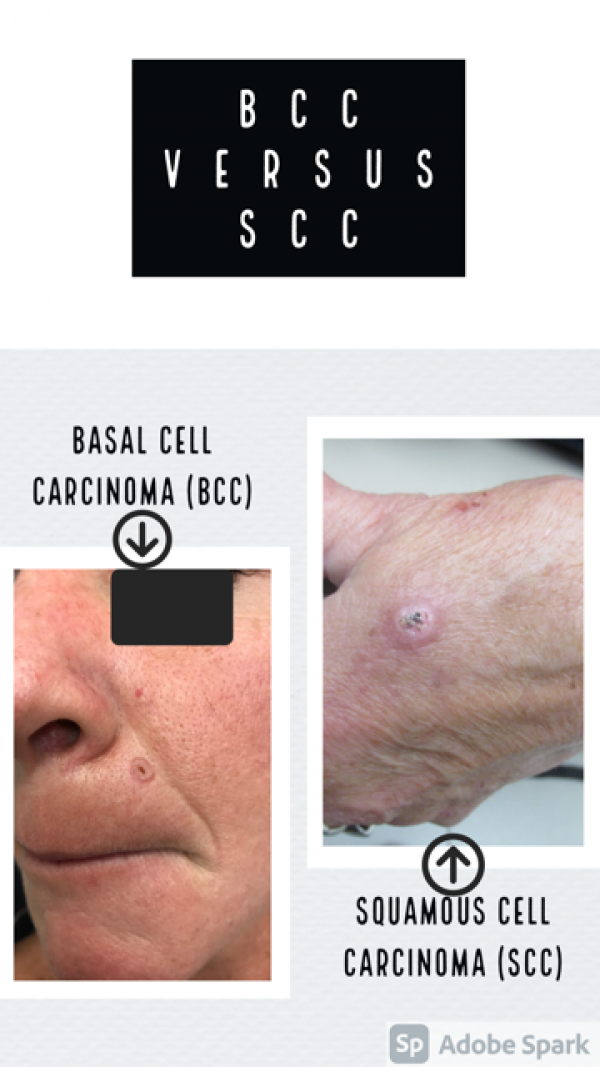
The term 'nonmelanoma skin cancer' is often used to refer to basal cell carcinomas and squamous cell carcinomas. However, other less common forms of nonmelanoma skin cancers include:
• 'Adnexal' carcinomas, which arise from sweat glands, sebaceous glands (oil glands), and hair follicles
• Merkel cell cancer
• Sarcomas of the skin
'Keratinocyte' carcinoma refers specifically to skin cancers that arise from skin cells (keratinocytes) in the epidermis. Basal cell carcinomas comprise approximately 80% of keratinocyte carcinomas, and squamous cell carcinomas comprise approximately 20%.
The Skin Cancer Foundation recommends that you see a dermatologist once a year for a full-body skin cancer screening. Individuals at higher risk for skin cancer may be screened more frequently. The Skin Cancer Foundation also recommends that you perform a monthly self-skin exam at home in a well-lit room.
You can find some helpful pointers on performing self-skin exams at:
https://www.skincancer.org/early-detection/self-exams/
and
https://www.aad.org/public/diseases/skin-cancer/find/check-skin

Follow these tips from board-certified dermatologists to increase your chances of spotting skin cancer early, when it’s most treatable.
https://www.aad.org/public/diseases/skin-cancer/find/check-skin

Platelet-rich plasma (PRP) therapy is a form of hair loss treatment that can harness and amplify the body’s unique natural growth factors to support hair growth.
The growth factors restore favorable conditions by:
1. Stimulating the proliferation of hair stem cells
2. Improving circulation to the hair follicles by stimulating the formation of new blood vessels around the hair follicles
3. Extending the growth phase cycle of the hair
Medical studies demonstrate PRP treatment:
• Increases hair count
• Increases hair density
• Increases individual hair shaft thickness
• Slows further hair thinning
Ask your dermatologist today if PRP is right for you!

Even patients with long-standing #arthritis can see an improvement in mobility after #Stem #Cell #Therapy treatment.


Get your caffeine fix this national coffee day in your skin care! Retinol is an amazing anti-aging product that helps improve fine lines and promotes healthy skin cell turnover. Our dermsd retinol includes caffeine to help reduce inflammation and puffiness for brighter, tighter skin!

What’s the difference between a basal cell and squamous cell skin cancer? To your dermatologist, it can be very obvious based on their physical appearance. Basal cell carcinoma (BCC) is the most common type of skin cancer. It typically occurs on sun exposed areas of the skin and is slow growing. It is very rare for a BCC to spread, however if left untreated can become larger.
Squamous cell carcinoma (SCC) also occurs in sun exposed areas. If actinic keratoses are left untreated they can eventually become SCC. If left untreated, squamous skin cancer are more likely to spread deeper into the skin, or spread.
Both types are very responsive to treatment. To ensure a skin cancer is caught early, keep up with regular skin exams, watch for changes, and wear your sun screen!
